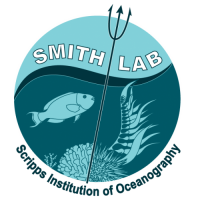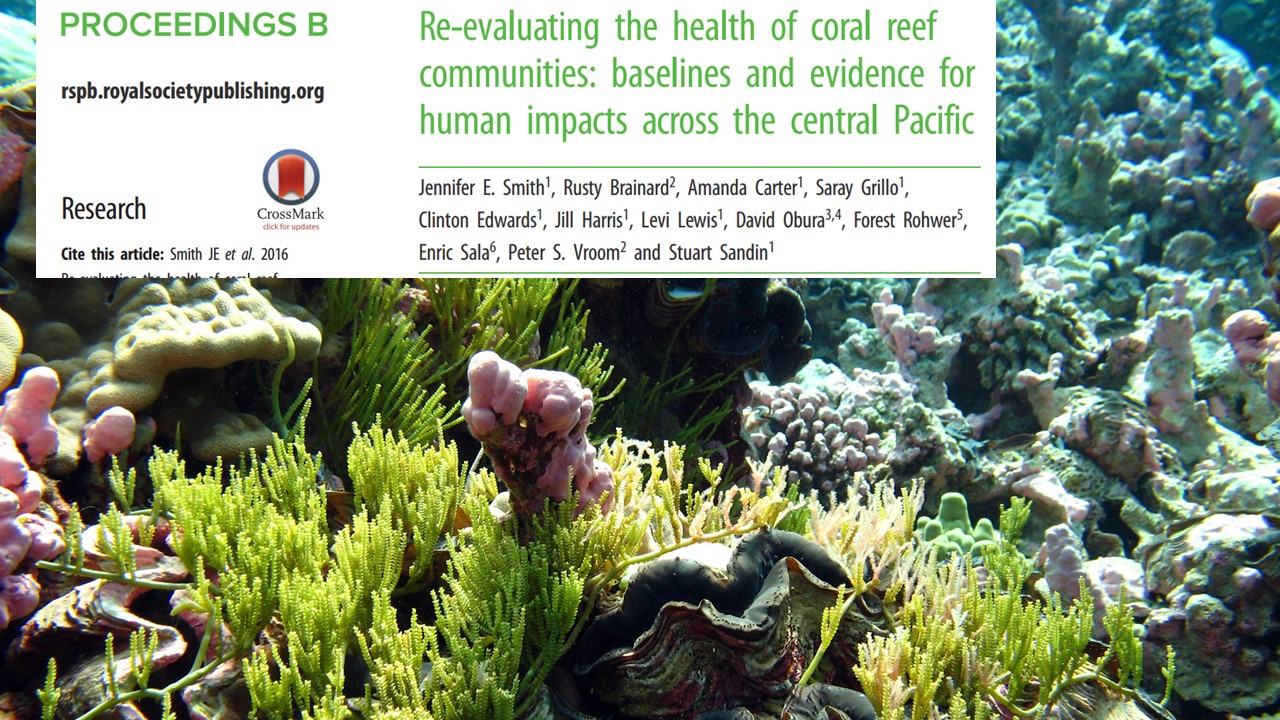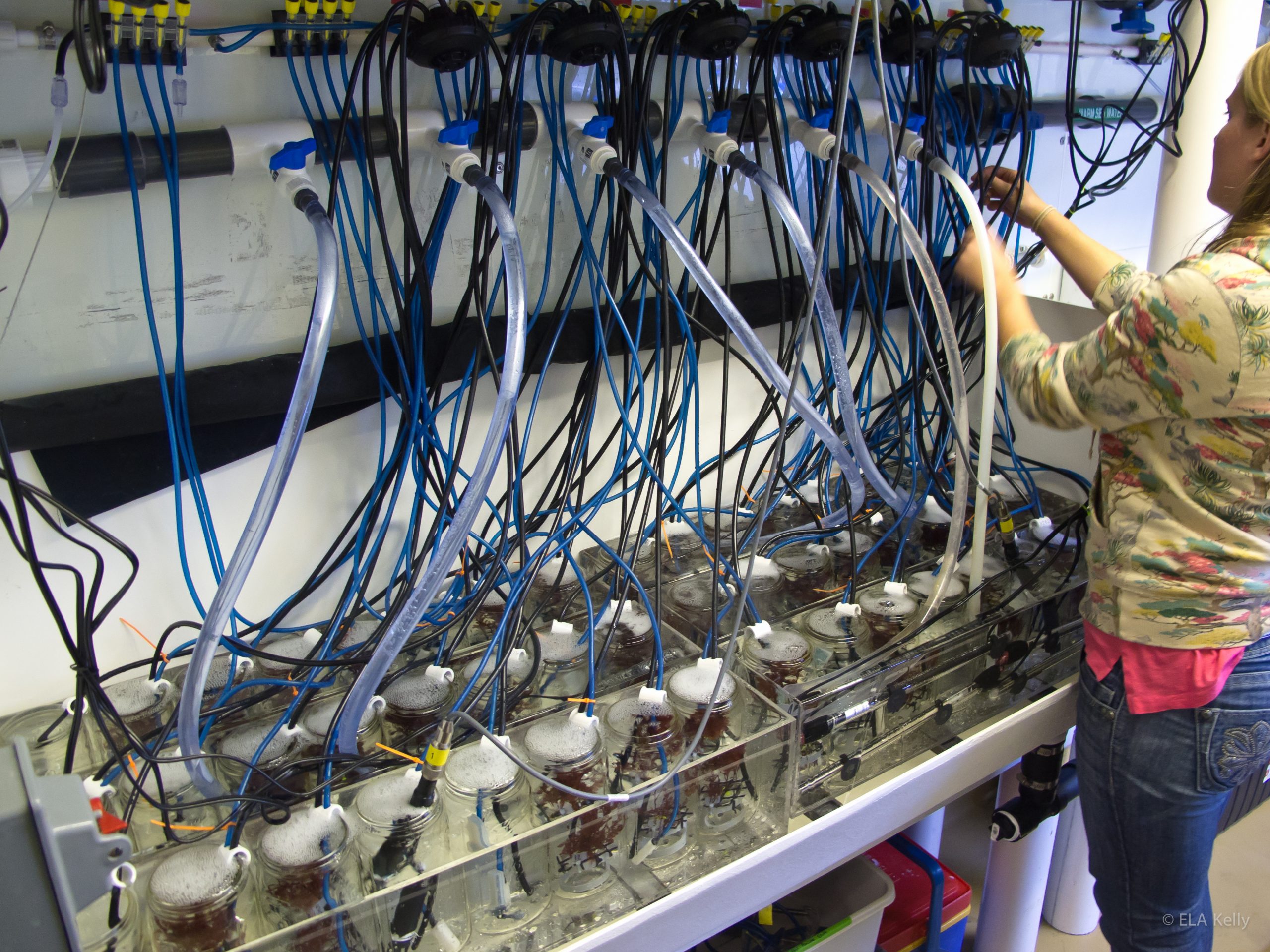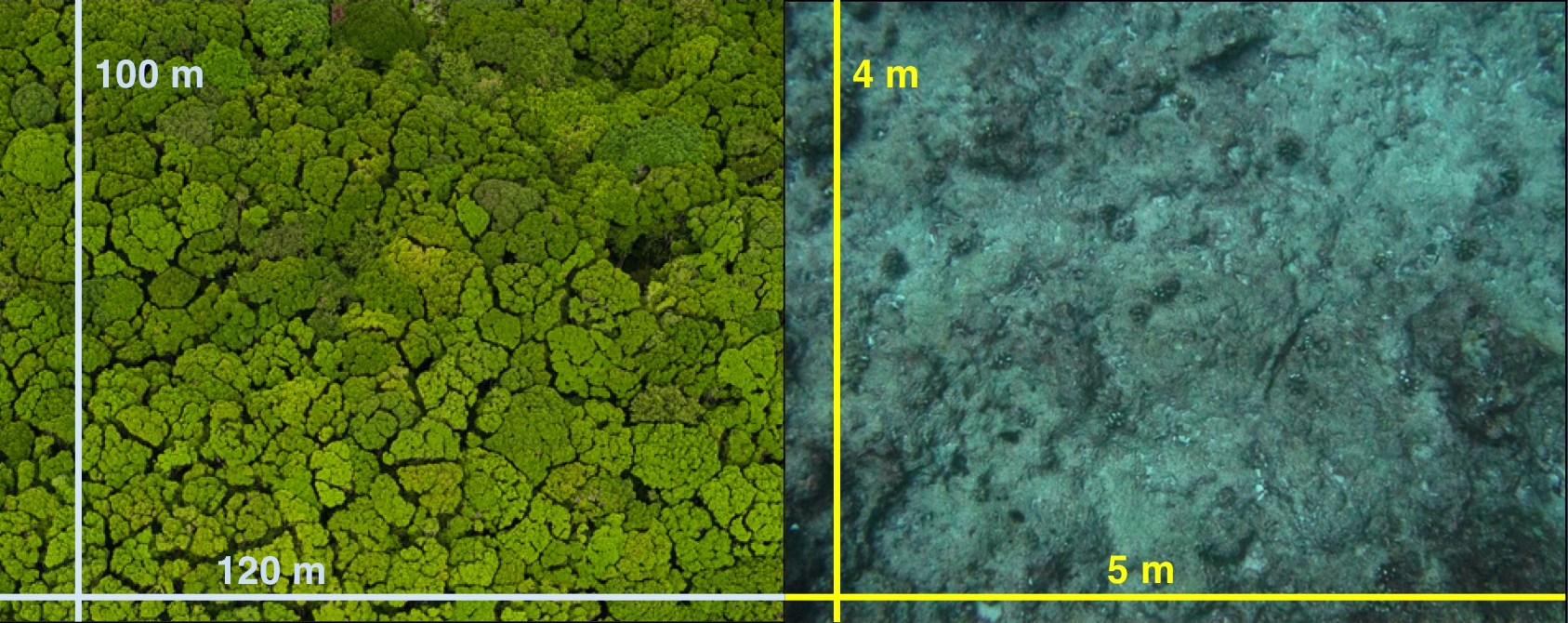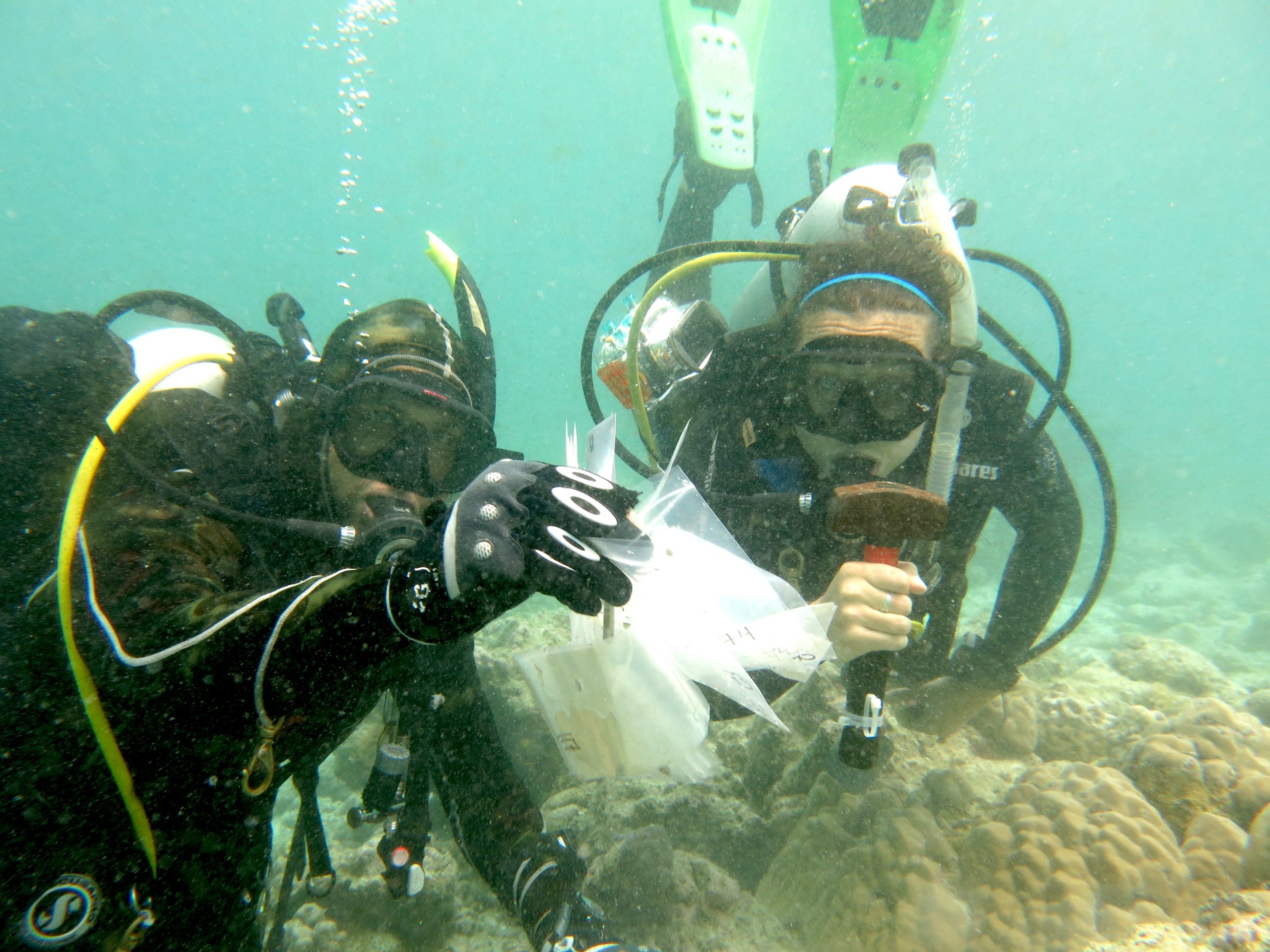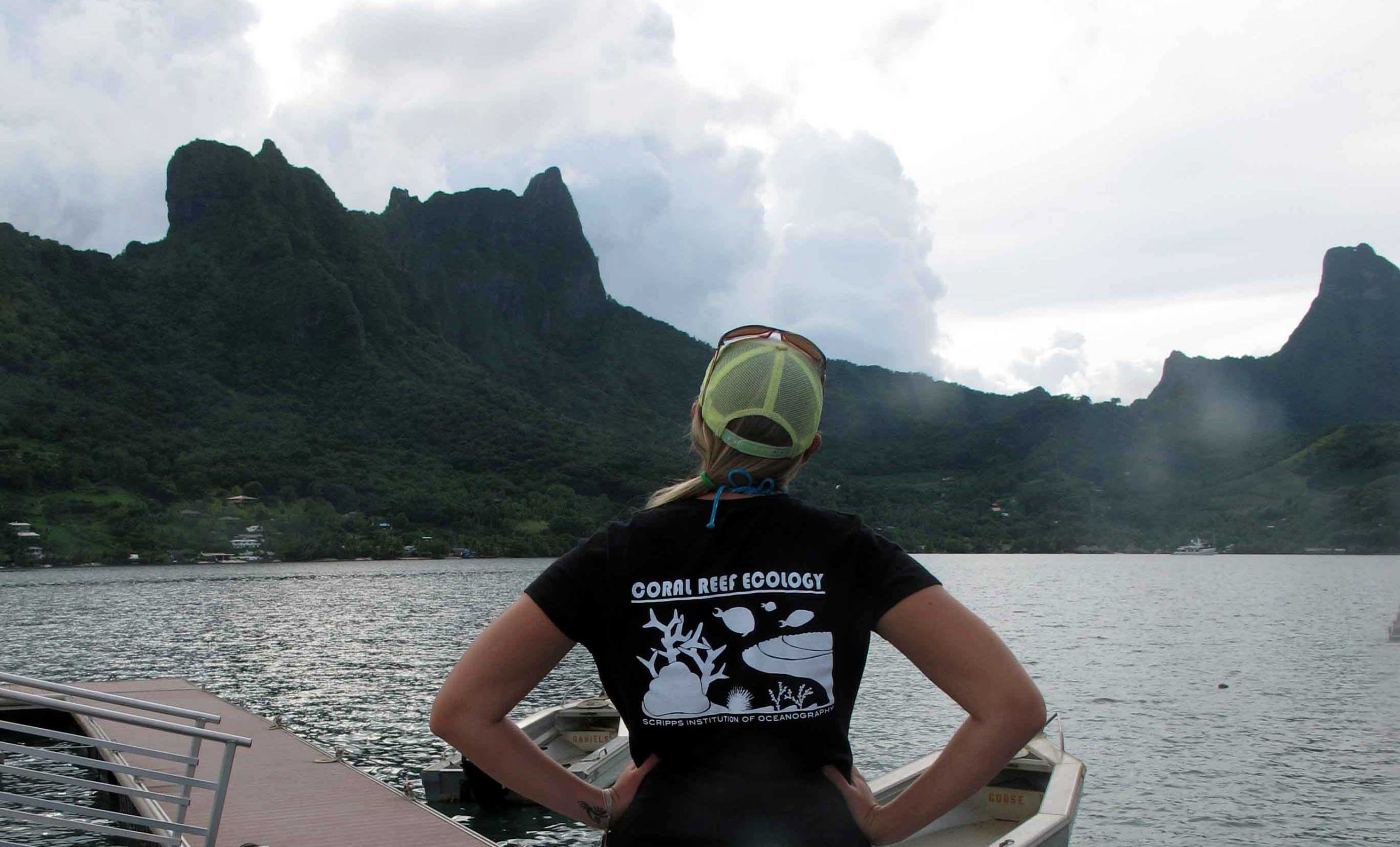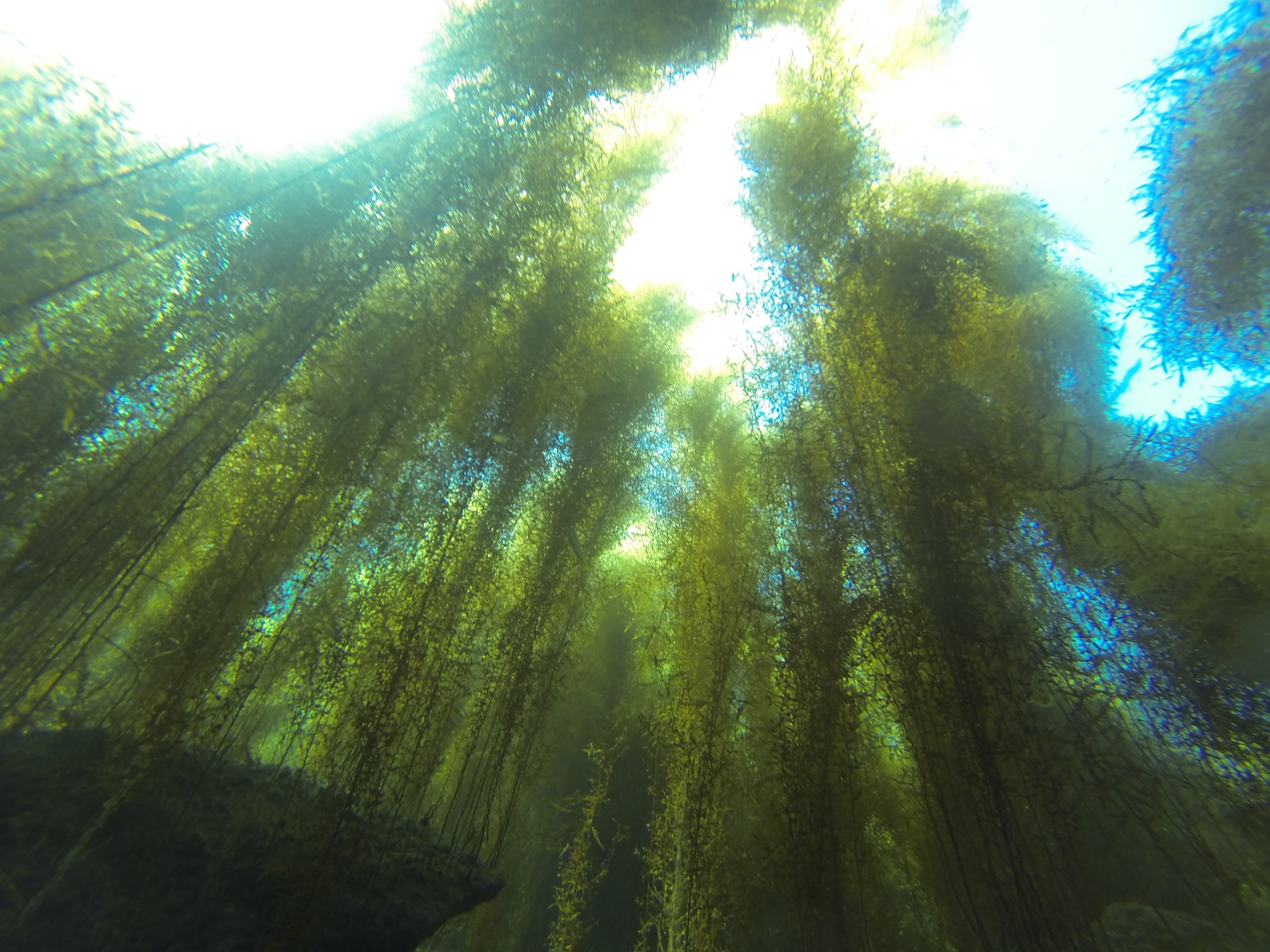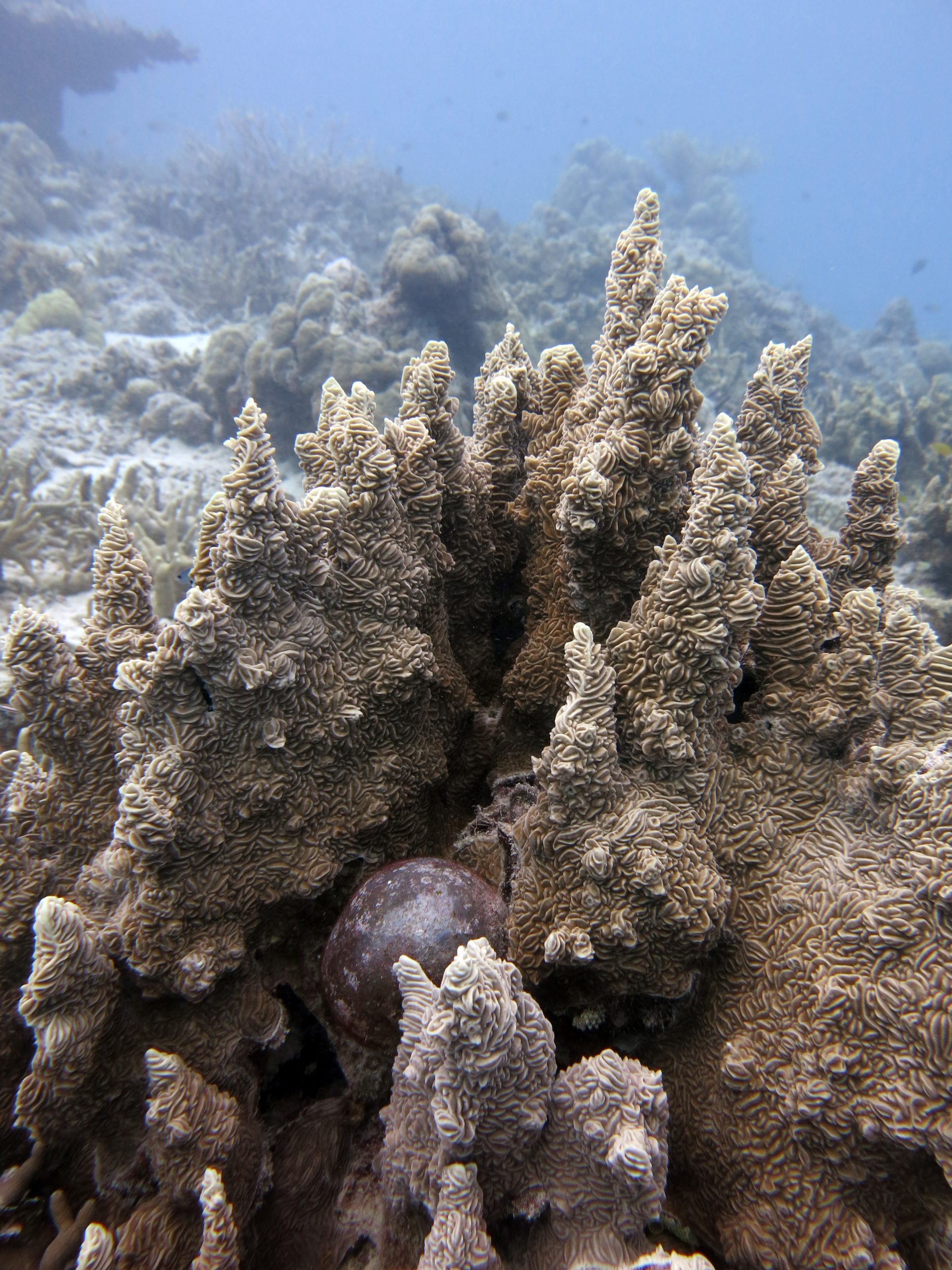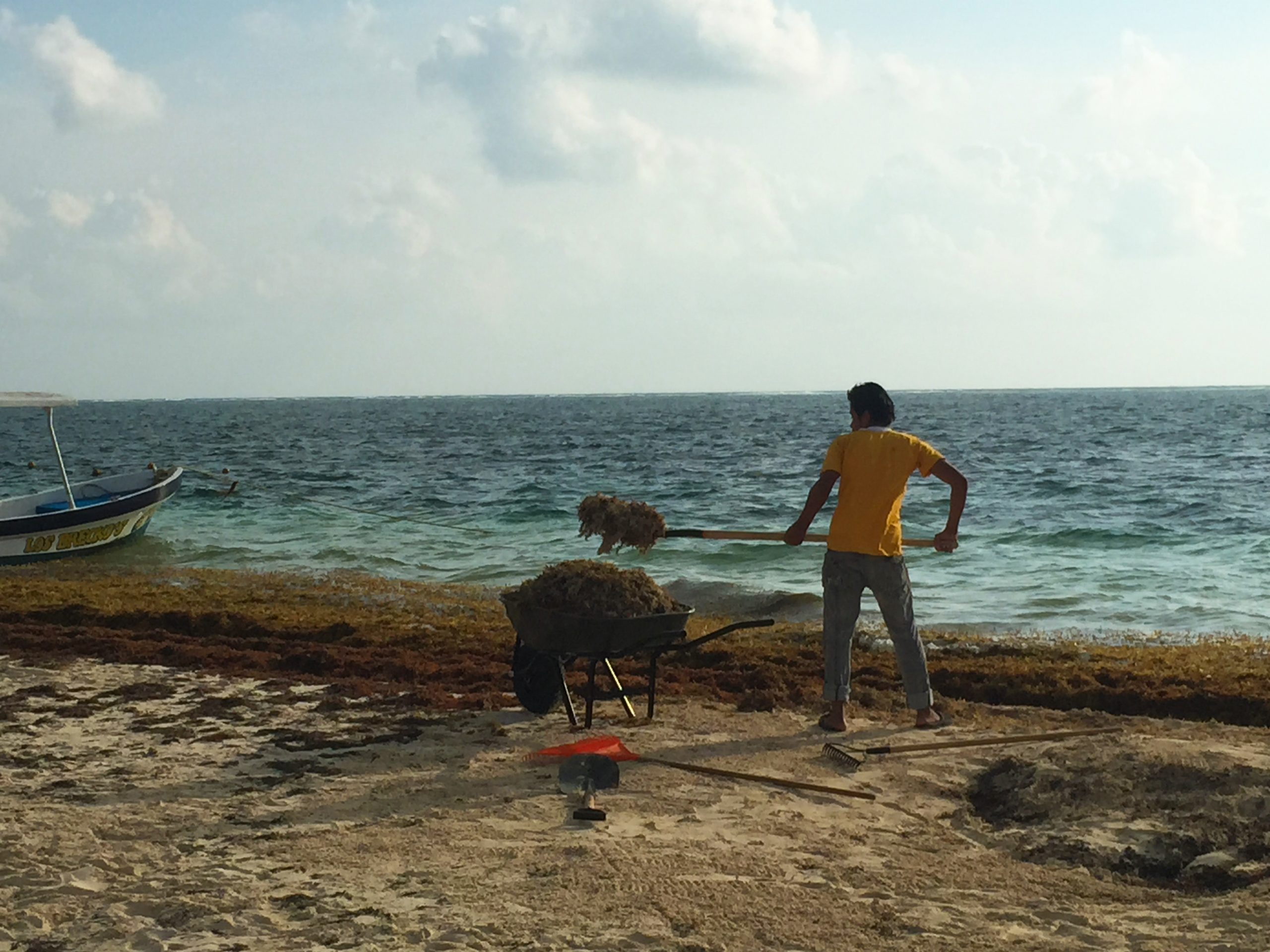Global microbialization of coral reefs Abstract: Microbialization refers to the observed shift in ecosystem trophic structure towards higher microbial biomass and energy use. On coral reefs, the proximal causes of microbialization are overfishing and eutrophication, both of which facilitate enhanced growth of fleshy algae, conferring a competitive advantage over calcifying corals and coralline algae. The proposed mechanism for this competitive … Read More
Published Results on Invasive Algae in San Diego
Smith Lab members Niko Kaplanis and Jill Harris recently published the results of their San Diego County non-native algae research project conducted between 2012 and 2014. This work documented patterns of establishment, spread, and persistence for two non-native algal species in San Diego county and analyzed this invasion in the larger geographic context of the entire Pacific Coast of North … Read More
From the Pristine to Degraded: Reefs of the Central Pacific
Scripps led research team assesses the impacts of human disturbance on coral reefs. In one of the most comprehensive assessments of Pacific Ocean coral reef health spanning 10 years, 56 islands, and five archipelagos, Scripps Institution of Oceanography at UC San Diego marine ecologist Jennifer Smith and colleagues examined how coral reef communities at 450 sites are faring with … Read More
Published Results: Effects of ocean acidification on San Diego seaweeds
A new paper, written by Susan Kram and co-authors, was recently accepted for publication in the ICES Journal of Marine Science themed article set on Ocean Acidification. The paper, “Variable responses of temperate calcified and fleshy macroalgae to elevated pCO2 and warming,” describes the responses of six different locally abundant San Diego seaweeds to future ocean acidification and warming conditions. … Read More
Published Results – new paper focuses on the small things on a coral reef
Jill’s new paper, written with Jen and Levi, came out recently in the Marine Ecology Progress Series. Their paper, Quantifying scales of spatial variability in algal turf assemblages on coral reefs, describes how turf algae on a coral reef are variable over very small scales. Turf algae are a group of small (~ 1 cm tall) algae that grow like a fuzzy … Read More
New paper focuses on the small things on a coral reef
By Jill Harris Jill’s new paper, written with Jen and Levi, was recently accepted for publication in the Marine Ecology Progress Series. Their paper, Quantifying scales of spatial variability in algal turf assemblages on coral reefs, describes how turf algae on a coral reef are variable over very small scales. Stay tuned for the official publication of the paper, but in the … Read More
These Three Reefs Are Not Like Each Other
By Maggie Johnson My field work entails a combination of field and laboratory experiments. Field work is utterly exhausting; working in and on the water for all daylight hours and then in the lab for what remains of the day. But one of the things I love the most about being a marine biologist with field based research is the … Read More
The Sargassum horneri Invasion at Catalina Island
By Niko Kaplanis In April of 2006, during a survey for the Channel Islands Research Program (CIRP), renowned scientists Kathy Ann Miller and John Engle discovered an established population of the invasive alga Sargassum horneri near the Wrigley Marine Science Center at Santa Catalina Island. This was the first instance of the species being documented at one of California’s offshore … Read More
The Faces and Functions of Algae on the Reef
By Samantha Clements Algae, often referred to as “seaweed,” are underwater “plants” that, unlike land plants, lack a vascular system. Algae live underwater and obtain water, nutrients, and sunlight directly from the environment. Because algae don’t need a vascular system, they come in many shapes and sizes and may look very different from land plants. Some algae, such as Ventricaria … Read More
Adventure in Puerto Morelos, Mexico
By Mike Fox Last week I traveled south to Puerto Morelos, Mexico to participate in an intensive 3-week course about Light and Photosynthesis on Coral Reefs. Hosted by Dr. Roberto Iglesias-Prieto and the National Autonomous University of Mexico (UNAM), this class provides an incredible opportunity to study the photosynthetic physiology of corals, algae, and seagrasses. Our course is taught … Read More

